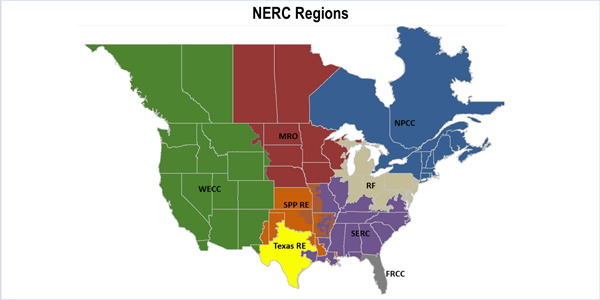By Rich Heidorn Jr.
FERC last week rejected NERC’s request to eliminate public posting of self-reported compliance exceptions and to expand compliance exceptions to include some moderate-risk violations.
“In most situations, information on NERC’s resolution of compliance and enforcement matters should be transparent and publicly available,” the commission said. The rejections came in an order in which the commission accepted NERC’s annual report on its Compliance Monitoring and Enforcement Program (CMEP) (RR15-2-005).
In February 2015, the commission allowed NERC to move to a risk-based approach to compliance monitoring and enforcement, which allowed low-risk violations of reliability rules to be recorded and mitigated without formal enforcement actions. It also allowed registered entities that passed a NERC review of their internal controls to self-log and mitigate minimal-risk violations, subject to periodic, rather than individual, reviews by the Regional Entity. (See New NERC Enforcement Methods Allow Self-Logging Minor Risk Issues.)
Incentive Lacking?
NERC said the commission “unintentionally removed an incentive for registered entities to participate in the program” when it required public logging, contending that it had reduced interest in the program.
The Edison Electric Institute, the ISO/RTO Council (IRC) and MISO transmission owners were among those supporting NERC’s proposal to eliminate public posting. The IRC noted that only 59 of more than 1,200 registered entities participate in self-logging, saying that the incentives to participate were inadequate.
The American Public Power Association, Electricity Consumers Resource Council, National Rural Electric Cooperative Association and Transmission Access Policy Study Group opposed the elimination of public posting in a joint filing, saying the transparency was needed to educate the industry and preserve the credibility of NERC’s enforcement program. They said that because compliance exceptions are a significant percentage of noncompliance, the public disclosures allow registered entities to understand compliance requirements. They also said the public posting could help identify unnecessary or redundant reliability requirements.
The commission said it agreed with the commenters who supported continued public disclosure. “The value of maintaining the transparency of self-logged noncompliance continues to outweigh the asserted benefit that might accrue from increasing the incentive to participate in the program,” FERC said, citing the “minimal” burden of public posting and the benefits it provides in “educating industry and ensuring consistency across NERC’s and the Regional Entities’ compliance and enforcement programs.”
Find, Fix and Track Program
FERC also rejected NERC’s proposal to expand the compliance exceptions program to include moderate-risk noncompliance, although all commenters supported NERC’s request.
Moderate-risk violations that have been corrected are currently subject to the Find, Fix and Track (FFT) program, which allows NERC to process them through informational filings instead of the formal Notice of Penalty procedure.
“We are not persuaded that the claimed efficiency gains in processing certain moderate-risk violations as compliance exceptions, rather than as FFTs, are sufficient to outweigh our concerns with treating many moderate-risk noncompliances through a nonenforcement track,” FERC said. “While this approach may be appropriate for minimal risk violations, NERC has not adequately justified this limited approach for moderate-risk violations.”
The commission also raised questions about the FFT program, saying its staff had identified a compliance exception involving falsification of battery testing records by a registered entity’s employee that was disposed of via the FFT process. “The commission does not consider it appropriate to process instances of noncompliance involving falsification of records as compliance exceptions or FFTs,” it said. “Rather, such circumstances warrant a full Notice of Penalty.”
NOPR on Training, Coordination of Protection Systems
In a separate Notice of Proposed Rulemaking, the commission proposed reliability standards PRC-027-1 (Coordination of Protection Systems for Performance During Faults) to ensure protection systems used to detect and isolate faults operate in the intended sequence.
The NOPR also proposed the approval of reliability standard PER-006-1 (Specific Training for Personnel) to ensure that personnel involved in real-time operations are adequately trained (RM16-22).





